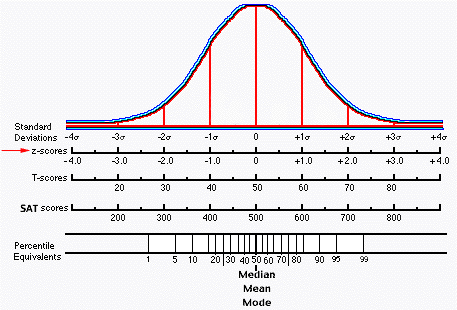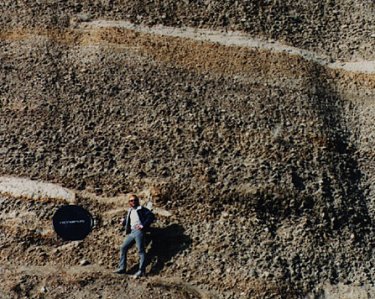Swan Song
The Black Swan: the Impact of the Highly Improbable, Nassim Nicholas Taleb, 2007.
Taleb wants us to know that we are genetically wired to organize information in our minds so that the information “makes sense” to us, that we can explain to ourselves what has happened in the past, to tell stories. Then a herd instinct selects those stories and explanations that become accepted by the largest number or are promoted by the “authorities or experts”. Unfortunately, those soothing stories and explanations arise only after the fact and only look backward. They often ignore or are based on incomplete information and are useless to help us operate into the future.
He gives the example of William Shirer, author of the definitive The Rise and Fall of the Third Reich. Shirer had previously published Berlin Diary: The Journal of a foreign correspondent, 1934-1941 in 1941. The journal was written in real time as events unfolded, and while no doubt edited for publication, clearly indicates that neither Shirer, nor any other European power had an understanding or appreciation for what was unfolding in Germany, nor any ability to anticipate any of Hitler’s moves. The definitive story could only be written long after the facts in 1960.
The past is the one thing we are not prisoners of. We can do with the past exactly what we wish. (From A to X A Story in Letters by John Berger)
Taleb’s central thesis is that the world abounds in highly improbable events that cannot be predicted. Taleb desperately wants to believe that to some extent they can at least be anticipated by the open minded empiricist.
The title of the book comes from a centuries old assumption that all swans are white which was taken as an accepted fact or law until black swans were discovered in Australia. Taleb’s own black swans were the outbreak of a long war in historically peaceful Lebanon during his childhood, and the various economic crashes and downturns during his career as a wall street trader. He hopes that the enlightened observer/empiricist may be able to anticipate the unanticipated which he calls the search for the gray swan.
Maybe Taleb has uses the wrong metaphor with his black swan. John Le Carre’s novel A Most Wanted Man uses the Lipizzaner horse as the code name for a money laundering scheme because of the breed’s ability to turn from black to white as it ages. When faced with an unexpected black horse all we need to do is wait for the horse to turn white and all will be well.
Much of the book is a diatribe against the incorrect use of the Gaussian Bell Curve, particularly in the social sciences and most particularly in the economics of practitioners like Paul Samuelson, whose textbook Economics: An Introductory Analysis, first published in 1948, has been used as the fundamental introduction to economics for generations. The last edition was published in 2004. In the real world, the outliers, far from being ignorable as they are in the Bell Curve, can outweigh the whole curve altogether, as does a Bill Gates or Google.
He also insists on poking fun at the Nobel Laureates, particularly those in economics. He has a general dislike for experts and future forecasters who in study after study have been shown to be so wrong that advise from a taxi driver or even other primates is as accurate.
For Taleb, the Gaussian Bell Curve is best suited to betting in a casino, one the rare environments, where the laws of probability truly apply – so long as the gamblers are not whales willing to risk millions on a single bet, or card counters able to change the odds in their favor.
Taleb also takes on game theory models pioneered by John Nash, which have been used improperly by economists, corporations, and wall street actors to justify greed and selfish behavior as the best way to optimize the results for all players. Not so says Taleb but he doesn’t dwell on the subject.
Taleb favors Mandelbrot fractal distributions using the law of powers to be able to model systems with extreme outliers such as the uneven distribution of wealth where a Bill Gates can outweigh the wealth of wholes cities or countries of individuals; where a Google can be worth more then the rest of the internet players combined; and where a J.K. Rowling (Harry Potter) can single-handedly outsell all other books in print. These are unpredicted successes due largely to luck according to Taleb. Taleb hopes that the use of fractal models can turn these black swans into gray swans.
PBS NOVA recently featured the discovery of fractals in their Hunting the Hidden Dimension.
The above photo from the book illustrates how scale can be deceptive. Without the man in the picture, the image looks like a camera lens cap dropped on the ground.
The book is useful in helping us understand how little we can really know about our unpredictable lives and how little we should trust the experts. He asserts that the more we read and listen to the experts the less we will know about our world except perhaps in physics although even physics is increasingly entering the realm of uncertainty.
Less helpful is his advise on what we should do as free-will actors to navigate this unpredictable world successfully. Knowing that highly improbable events will continue to happen – even if our fractal models can deal mathematically with extreme outliers – still does not really help us to respond or act until the unlikely events actually unfold. The consequences of improbable events can vary enormously. A Microsoft, bad and buggy as their software may be, does not carry the same impact as a melting ice cap or a meteor strike or a new virulent virus, or even a mad terrorist.
Taleb points out that in the war on terror, acting from the “lessons” of an improbable event is rarely helpful – the event is already behind us and we should expect that the next event will be equally unlikely and unpredictable. Locking the cockpit doors on airlines is a proverbial case of closing the barn door after the horse has escaped. Yet our new President is as determined to go after Osama Bin Laden as his predecessors, even at the risk of war with Pakistan. We likely don’t even know who the next big terrorist is going to be, much less from where he/she will launch an attack, on what target, and using what weapon. Taleb says our intelligence (anticipating the future) is awful and there are no signs it will get any better. For a novelist’s take on the state of modern intelligence in dealing with Islamic extremists, again see John LeCarre’s A Most Wanted Man.
As a skeptic and iconoclast Taleb is at his best. Advising what we should do about our uncertain plight is less than satisfying. How can you model something, even with fractals, if you don’t know what, when, or how bad it will be. Whatever it is, it will be unexpected, and it will be big.
It’s like the Bob Dylan song says: “Something is happening here, but you don’t know what it is, do you, Mr. Jones.”
Postscript: Taleb put in an appearance on Charlie Rose where he said about the current economic meltdown;
Never in the history of the world have we had a situation with so much complexity with so much ignorance at the top.


